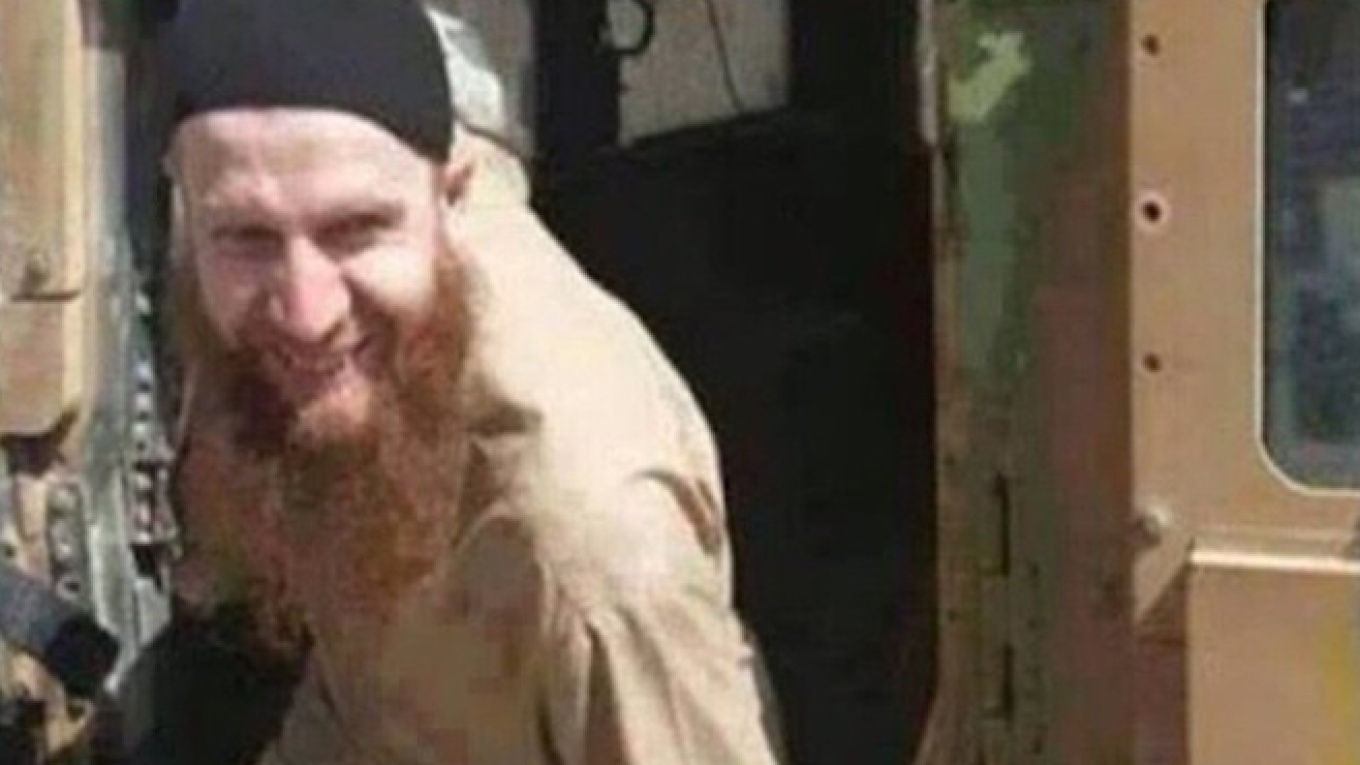The infamous red-bearded Islamic State militant popularly known as Omar al-Shishani has been killed in Chechnya, the republic's strong-man leader Ramzan Kadyrov said Thursday.
Al-Shishani, born Tarkhan Batirashvili, is among the most recognizable members of the Islamic State's leadership. The ethnic Chechen is from Georgia's Pankisi Valley, which was once considered a stronghold for militants.
“Tarkhan Batirashvili, the enemy of Islam who called himself Omar al-Shishani, has been killed. [The same fate belies] anyone who even thinks about threatening Russia and the Chechen people,” Kadyrov wrote on Instagram alongside a photograph of the supposedly dead militant. Kadyrov is known to favor Instagram as a means of communicating important information to the masses.
In a videotaped address to Russian President Vladimir Putin posted on the Internet in September, Islamic State members threatened to wage war on the North Caucasus, a predominantly Muslim region that for years battled an insurgency led by Islamic fundamentalists.
"We will, with the consent of Allah, free Chechnya and all of the Caucasus! The Islamic State is here and will stay here, and it will spread with the grace of Allah," militants said in the video.
Kadyrov dismissed the threat at the time, saying it was nothing more than a ?€?childish threat.?€?
This is not the first time Kadyrov has been the first source of official information on the death of an Islamic terrorist, but it is a subject he has been wrong about in the past.
In January, ahead of the Winter Olympics in Sochi, Kadyrov announced that Doku Umarov, widely considered Russia's enemy No. 1 in its battle with the Islamic insurgency in the North Caucasus, had been killed.
But that declaration came after many more just like it, with Kadyrov repeatedly proclaiming Umarov dead only to have him pop up again in threatening video addresses.
Russia's Federal Security Service confirmed Umarov's death only in April, two months after the Olympics.
A Message from The Moscow Times:
Dear readers,
We are facing unprecedented challenges. Russia's Prosecutor General's Office has designated The Moscow Times as an "undesirable" organization, criminalizing our work and putting our staff at risk of prosecution. This follows our earlier unjust labeling as a "foreign agent."
These actions are direct attempts to silence independent journalism in Russia. The authorities claim our work "discredits the decisions of the Russian leadership." We see things differently: we strive to provide accurate, unbiased reporting on Russia.
We, the journalists of The Moscow Times, refuse to be silenced. But to continue our work, we need your help.
Your support, no matter how small, makes a world of difference. If you can, please support us monthly starting from just $2. It's quick to set up, and every contribution makes a significant impact.
By supporting The Moscow Times, you're defending open, independent journalism in the face of repression. Thank you for standing with us.
Remind me later.


